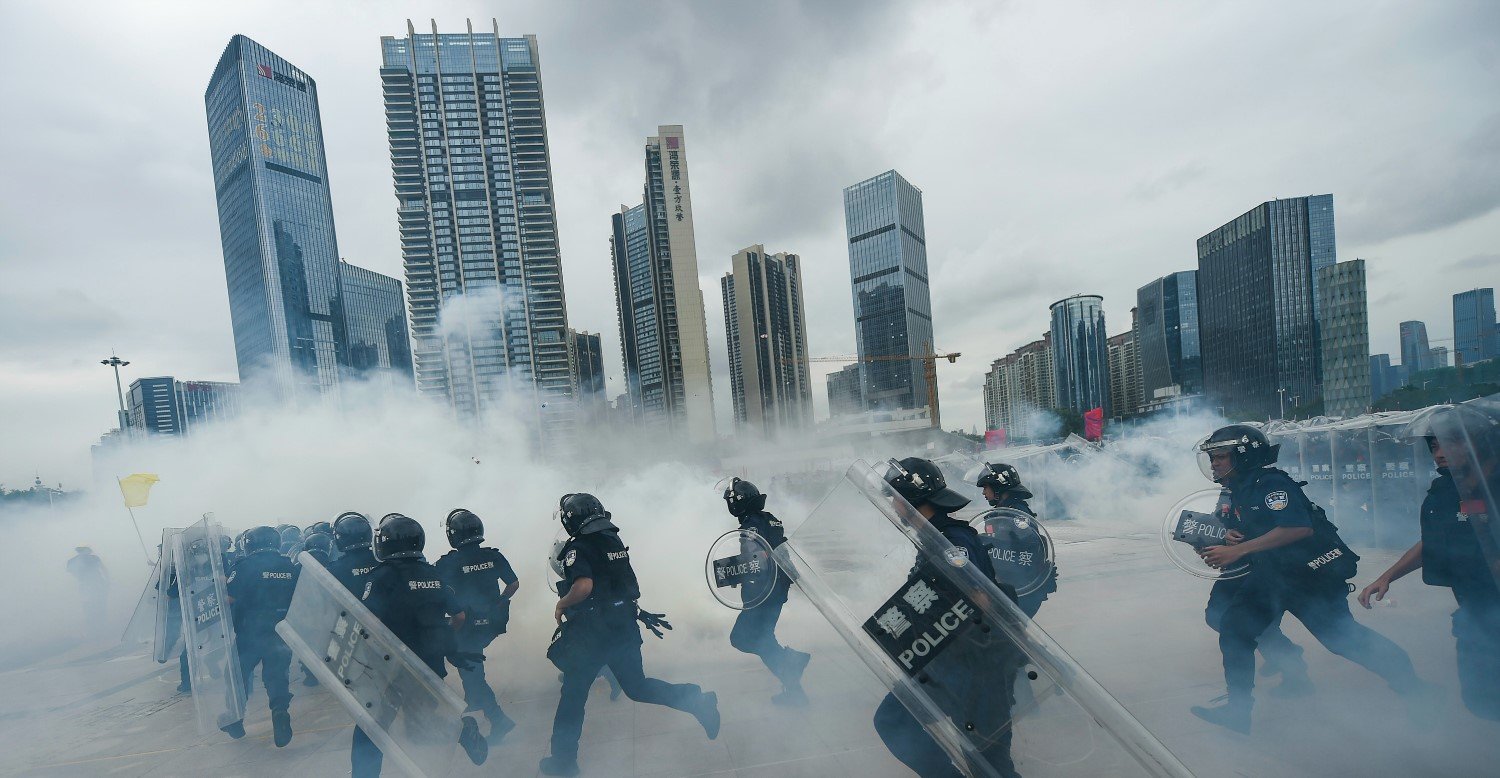

Aug
In light of the dramatic protests which have taken place as a result of an initiative which revolves around “Hong Kong to mainland China” extradition, more and more otherwise uninterested observers have become… well, interested in this currently hot news story. However, a few superficial “one-liners” spouted by various more or less historically ignorant pundits are in no way enough to understand how we got here.
ChinaFund.com believes in being thorough and with that in mind, let’s start our analysis with the year 1841, when the United Kingdom ended up occupying the Hong Kong area during the First Opium War. Simply put, China was not all that eager to engage in massive trade with the British anyway and even more so, commerce with opium was generating a serious addition problem in China.
As such, the two parties ended up turning a commercial confrontation into an actual armed conflict. Unfortunately for China, it was in no way technologically sophisticated enough to be a match for the British and as a result, it was defeated and among other humiliating concessions, agreed to essentially hand over the island of Hong Kong to the United Kingdom forever through the (in)famous Treaty of Nanjing. As time passed, the British secured the two other Hong Kong regions as well, specifically the Kowloon Peninsula and the New Territories. Formally speaking when it came to the latter, the final Convention for the Extension of Hong Kong Territory of 1898 revolved around China “leasing” the New Territories to the United Kingdom for a period of 99 years or, in other words, until the 1st of July 1997.
Fast-forward to 1949, when the communists took over in China and… let’s just say the economic path of Hong Kong was remarkably different. Unlike China, which embarked on an ideologically rigid journey which would come with dire economic costs, Hong Kong embraced a totally new system, becoming a capitalist multi-cultural success story. In fact, an almost six-figure number of Chinese emigrated to Hong Kong so as to flee from communism during the early post-WWII days.
As time passed and the 1997 “deadline” got closer, a political problem emerged: what should happen to Hong Kong as of that point? This is because the previously mentioned treaty only refers to the New Territories (with it being worth noting that these New Territories account for most of Hong Kong’s surface), not to the other two territories. Needless to say, fragmenting Hong Kong was a less than desirable outcome and as such, diplomatic negotiations started as of the seventies.
These negotiations culminated with the “Sino-British Joint Declaration” treaty of 1984 (during the Margaret Thatcher administration), which stipulated that yes, the United Kingdom would “let go” of Hong Kong but on the other hand, China needed to commit to granting it a certain level of autonomy over a period of 50 years through what ended up being referred to as the “one country, two systems” approach.
On the one hand, Hong Kong was granted the status of Special Administrative Region, which means it has its own (limited) legal framework, the right to free speech and assembly (as illustrated by the recent protests) and so on. Unfortunately for Hong Kong, there is a limit to these rights because on the other hand, they cannot elect leaders directly. Instead, an “election committee” that consists of 1,200 members was put in charge of electing Hong Kong’s chief executive. To add fuel to what gradually became a fire, concerns arose over China’s increased interference in local politics, through (you’ve guessed it!) measures such as the previously mentioned extradition approach.
This ultimately begs the question: what is likely to happen in 2047, the year as of which China is no longer required to treat Hong Kong in the manner in which it started treating the region as of 1997, a manner negotiated as of the 70s and ratified through the 1984 agreement?
As the recent protests made clear, there is a remarkable difference between being legally allowed to alter the status quo and actually doing it, actually implementing measures which are anything but popular. At the end of the day, there are significant differences in terms of anything from economic ideology to political values when it comes to today’s China and today’s Hong Kong. As such, some kind of compromise will most likely have to be reached to avoid resorting to the use of force and the potential onset of a full-scale civil war.
The current protests need to therefore be treated as a piece of a very complex puzzle. Needless to say, the average Hong Kong individual is worried about the increasing erosion of freedoms, as the various measures China is trying to impose are perceived. China, on the other hand, has it share of geopolitical problems to juggle, from regional ones such as its relationship with Taiwan or the South China Sea issues to global ones such as the tricky trade-related negotiations with partners such as the United States. What happens next is anyone’s guess, and this much is certain: the economic as well as geopolitical stakes are worryingly high.
